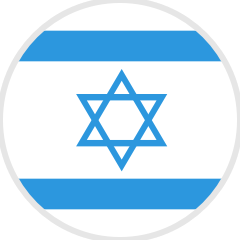Happy Birthday, Fluent Forever! Here’s How To Say Happy Birthday in 11 Different Languages
It’s Fluent Forever’s birthday! Send your favorite language learning app good wishes in your target language: here’s how you say happy birthday in the 11 different languages we offer.
Celebrating birthdays around the world
Four years ago today, Fluent Forever officially became an incorporated company. Yay! We hope to continue growing this wonderful language-learning community and helping you reach your language goals.
In Fluent Forever fashion, we’re celebrating by bringing you 11 ways to say happy birthday in different languages.
Remember, you can learn more nifty words and phrases by downloading the Fluent Forever app and trying our Live Coaching options.
Image by profivideos from Pixabay
Happy birthday in different languages – 11 of them!
1. French
Wishing someone a happy birthday in French is as easy as telling them bon anniversaire [bɔn‿anivɛʁˈsɛʁ] or joyeux anniversaire [ʒwaˈjøz‿anivɛʁˈsɛʁ]. In most French birthday parties, someone brings out a cake with candles in secret, making sure the birthday person doesn’t notice!
2. German
Alles Gute zum Geburtstag! [ˈʔaləs ˈɡuːtə tsʊm ɡəˈbuɐ̯tsˌtak] is how you wish someone a happy birthday in German. Make sure you don’t congratulate them before the official day because it’s bad luck!
3. Italian
Happy birthday in Italian is buon compleanno [ˈbwɔn kompleˈanːo]. If you host a birthday dinner with your Italian friends, remember that you’re expected to pay for food and drinks as well as open your presents in front of everyone.
4. Japanese
There are a couple of ways to say happy birthday in Japanese:
- お誕生日-おめでとうございます [o̞tã̠ɲ̟d͡ʑo̞ːbʲi o̞me̞de̞to̞ː ɡo̞za̠ima̠sɨ̥ᵝ] (otanjoubi omedetou gozaimasu), which is more formal and polite
- ハッピーバースデー (happii baasu dee), which is a bit more casual
Did you know that the Japanese weren’t used to celebrating birthdays before World War II? During the 1950s, there was an influx of Western traditions and ideas in Japan, which included birthday celebrations. Before that, people would commemorate New Year’s Day as the day everyone turned one year older.
5. Spanish
¡Feliz cumpleaños! [feˌliθ kumpleˈaɲos] (EU) [feˌliθ kũm.pleˈa.ɲos] (LA) is how you say happy birthday in Spanish. In Mexico, especially at children’s parties, guests receive a bag of candy at the end. In Spain, the birthday person will get their ears pulled once for every year they turn.
(Hint: Enjoying learning how to say happy birthday in different languages? Find out how to say cheers in different languages too!)
6. Korean
Wish your friend from Seoul a happy birthday in Korean by telling them 생일 축하 [sʰɛŋiɭ t͡ɕʰukʰa̠ɦɛjo] (Saeng-il Chugha). Go the extra mile and make them some 미역국 [mijʌ̹k̚k͈uk̚] (miyeok-guk), a traditional seaweed soup the birthday person gets treated to for breakfast.
7. Portuguese
Feliz aniversário! [feˈli(j)s anibeɾˈsaɾjo] means happy birthday in Portuguese. At birthday parties in Brazil, the celebrated will offer the first slice of the cake to their favorite person in attendance – kind of like a gift.
8. Russian
С Днём рождения! [ˈz‿dʲnʲɵm rɐʐˈdʲenʲjə] (S Dnem Rozhdeniya) is how you say happy birthday in Russian. Just like in Spain, Russians will pull the ear of the birthday person once for every year they turn.
9. Chinese
Happy birthday in Chinese is 生日快乐 (Shēngrì Kuàilè). As in Korea, the person traditionally gets to enjoy a special dish on their special day. In this case it’s 长寿面 (chang shou mian), which consists of noodles that are said to promote longevity.
10. Dutch
Gefeliciteerd met je verjaardag! [χefelisiˈteːɹt mɛt jə vɛɹˈjaːrˌdɑχ] is happy birthday in Dutch. Don’t be surprised if your Dutch friends congratulate your parents and siblings for your birthday – it’s customary to do so!
11. Hebrew
Last but not least, ום הולדת שמח (Yom huledet sameach) is how you wish someone a happy birthday in Hebrew. During bar/bat mitzvahs, celebrated when a Jewish boy or girl turns 13 and 12 respectively, it’s more common to say מזל טוב [ˈmaz(ə)l ˌtɒf] (mazel tov), meaning “good luck!”
Stoked about discovering more useful phrases in your target language? Don’t stop now! Keep learning by downloading our app, and join a Live Coaching program to speed up your progress.


















